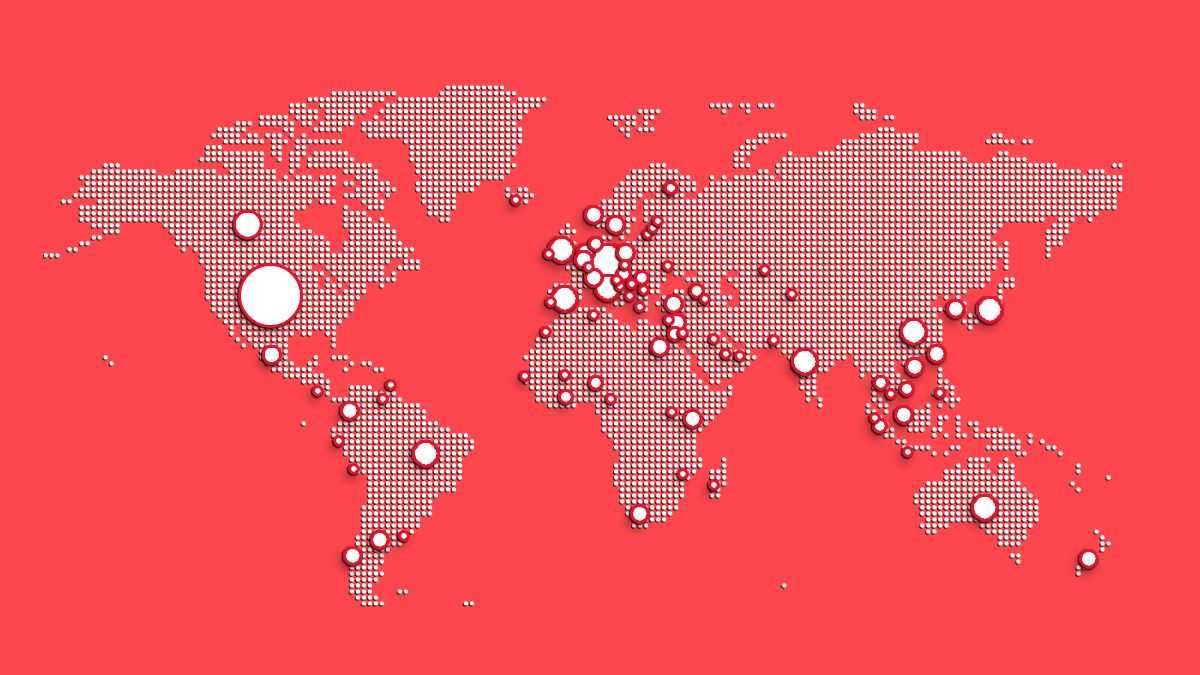
Home>International>Sciences Po and the world>Asia-Pacific Region
Sciences Po and the Asia-Pacific Region
A vast cluster of countries stretching from central Asia down to Oceania, the Asia-Pacific is a region of many superlatives. It is home to the world’s two most populous countries (India and China) and to six others with more than 100 million inhabitants. Some of these, like Pakistan, Cambodia and Vietnam, are developing countries, while others, like Japan, Singapore or Australia, are among the richest on the planet.
Sciences Po's collaborative activity in this rapidly changing region began in the late 1990s. It aims to raise the university’s profile among some of the most mobile student populations in the world, while developing academic and research partnerships in line with EU and French strategic priorities.
The Chinese-speaking world has long been a priority area for Sciences Po: China is now the fourth-most represented foreign nationality among international students at Sciences Po.
In addition, with 13 partner universities in India for our student exchanges, Sciences Po now hosts the highest number of Indian exchange students of any French university.
The diversity of our partnerships in South East Asia and Oceania reflects the richness and complexity of the region. They include certain high-profile strategic partnerships with particular impact for our reach and reputation within the region.
A popular choice for Sciences Po students studying abroad in Asia and Oceania, Japan is another priority country in our international strategy. We have spearheaded several prestigious collaborative initiatives with Japanese institutions in both education and research.
Sciences Po's partners in the Asia-Pacific region
Sciences Po has developed partnerships with 85 universities in countries throughout the region: in China, Hong Kong, Taiwan, India, Bangladesh, Pakistan, South-East Asia, Japan, Korea, Central Asia and Oceania.
These partnerships principally revolve around dual degree programmes, student exchanges in 19 countries, research collaboration, such as the WasePo project with Waseda University, and visiting research positions and professorships.
Sciences Po has also developed special relationships with certain universities, including Peking, Tsinghua and Fudan Universities in China; HKU in Hong Kong; Ashoka University and the Tata Institute of Social Sciences (TISS) in India; the University of Sydney in Australia; NUS in Singapore; Waseda and Keio Universities and the University of Tokyo (Todai) in Japan.
Meanwhile, there is a constant flow of new partnerships with other players in the academic landscape of the Asia-Pacific, reflecting the extraordinary diversity and dynamism of the region.
Dual degrees in the Asia-Pacific region
Sciences Po has established nine dual degrees with the leading social science universities in the Asia-Pacific region: four in China and Hong Kong, two in Japan, one in Singapore, one in Australia and one in India.
Four of these are dual Bachelor’s degrees, offered with the University of Hong Kong (HKU), Keio University, National University of Singapore and the University of Sydney. The other five are dual Master’s degrees, developed with Fudan University, Keio University, Peking University, the University of Tokyo and the Tata Institute of Social Sciences (TISS).
Finally, Sciences Po also offers special integrated programmes (BA/MA) to undergraduate students enrolled at Waseda and Keio Universities in Japan.
Academic programmes relating to the region
Several of Sciences Po’s academic programmes focus on the Asia-Pacific region.
At undergraduate level, the Sciences Po Le Havre Campus offers a minor in the Asia-Pacific region. Students taking the minor study the history, geopolitics, economics and sociology of the region, from a comparative perspective in relation to the United States and the European Union.
At Master’s level, the Paris School of International Affairs (PSIA) offers an Asian Studies regional concentration.
Students at the School of Research also have the option of specialising in Asian Studies as part of the Master’s in Political Science, Comparative Politics Major.
Research
- WasePo Dialogue: Sciences Po and Waseda University in Japnumerousan co-run an interdisciplinary research programme entitled “Humans and Mobility”, which focuses on issues of migration and diversity.
- Visiting professorships with Waseda and Keio Universities: Under the terms of two partnerships with Waseda and Keio Universities in Japan, Sciences Po hosts one professor or researcher from each of the two institutions for a period of a month annually. In return, the two Japanese universities each host one member of the Sciences Po faculty annually.
- A partnership between Sciences Po, Université Paris Cité and the Singapore branch of the INALCO gives researchers at Sciences Po and in Singapore the opportunity to work together on numerous joint interdisciplinary projects.
Sciences Po representative offices in Asia
Sciences Po has three permanent representative offices in Asia: a Chinese office in Beijing, an Indian office in New Delhi and a Singapore office. These regional bases drive our international activities in the continent: working to promote Sciences Po in top high schools and universities, supporting our students studying abroad, maintaining relationships with Asian public authorities and commercial actors, fundraising, coordinating alumni relations etc.
- Indian Office (Delhi): Neha Khanna (neha.khanna@sciencespo.fr)
- Chinese Office (Beijing): Huayin Liu (huayin.liu@sciencespo.fr) & He Han (he.han@sciencespo.fr)
- Singapore Office: Mariana Losada (mariana.losada@sciencespo.fr)
Key Figures
85
University partnerships
9
dual degree partners
1000
students from the Asia-Pacific region at Sciences Po
200
Sciences Po students studying abroad
+150
on an internship in the region every year
13%
of recent graduates employed abroad work in the Asia-Pacific region


